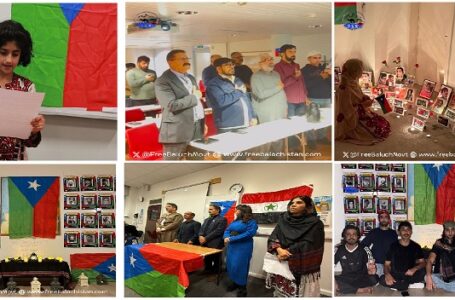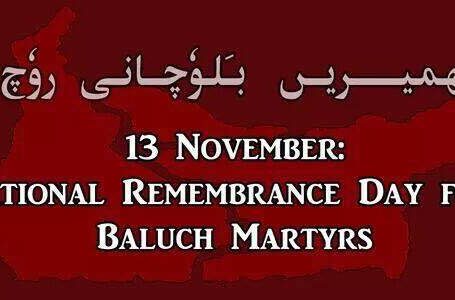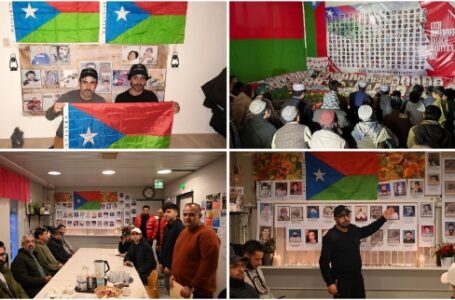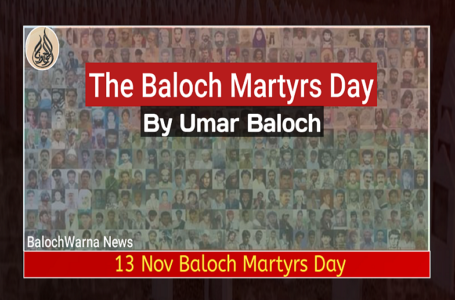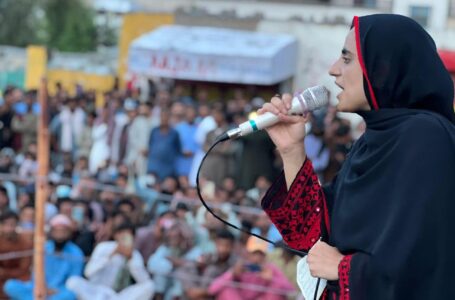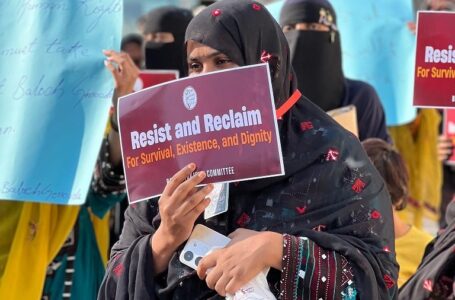FBM Holds Simultaneous Protests Against Pakistan’s Nuclear Tests on Baloch Land
Baloch Martyrs Day
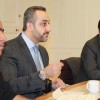
The Baloch nation at home and abroad observes on 13 November of every year as the National Remembrance Day (Baloch Martyrs Day) to commemorate the struggle and sacrifice of Khan Mehrab Khan Baloch who fought against British Empire forces and embraced martyrdom on 13 November 1839.
After this attack, the British divided Balochistan into three parts by drawing two arbitrary line known as the Goldsmith Line and the Durand line without the consent and agreement of Baloch nation. The Western part of Balochistan was given to Persia, modern Iran, and Northern Part fell under the administration of Afghanistan. The Eastern Part (currently occupied by Pakistan) remained semi-autonomous as a British protectorate until 1948.
The Baloch nation, however, continued their struggle to gain complete independence. In August 1947 the British finally realised that it can no longer rule the sub-continent and hence decided to leave the region. The British recognised and witnessed the signing of the standstill agreement about the independence of Balochistan before fully withdrawing from the region. On 11 August 1947, the Baloch ruler at the time declared complete independence and addressed the Baloch nation in Balochi language for the first time.
However, in March 1948 Pakistan forcibly and illegally occupied the sovereign state of Balochistan and arrested the elected representative of both houses ‘the House of Commons and the Houses of Lords’ including the ruler of Balochistan – the Khan of Kalat and his family. In the same year, the younger brother of the ruler Balochistan Prince Abdul Karim Khan started and led the first Baloch resistance against Pakistan and struggle for freedom.
The current struggle of Balochistan is a legacy of Khan Mehrab Khan’s struggle later carried on by Prince Karim Khan, Nawab Nouroz Khan, Mir Safar Khan, Mir Lavang Khan, Nawab Khair Bakhsh Marri and his like-minded friends, Nawab Akbar Khan Bugti, Balach Marri, Ghulam Mohammad Baluch, Khalid Baloch and thousands of other Baloch men, women, children and people from all walks of life.
Baloch, like many other nations, in their struggle for freedom and democratic rights have endured great sacrifices. In their endeavour to achieve these aims, many have encountered and experienced the wrath of the occupying states. In consequence, many Baloch men, women and children in their struggle for their democratic rights including the right to FREEDOM have been treated violently and inhumanly by the military and the intelligence services of these occupying states.
The very harsh treatment of Baloch people is well recorded, particularly by states such as Pakistan and Iran.
Since their illegal occupation of Balochistan, these states have been involved in the systematic imprisonment, torture, abduction and execution of Baloch. Currently, thousands of Baloch are missing from Pakistan occupied Balochistan; tens of thousands have been displaced.
To pay tributes to the Baloch Martyrs and those currently being held by Pakistan – whom we Baloch regard as prisoners of war – the Baloch pro-freedom leader Hyrbyair Marri and his like-minded friends including Dr Mostafa Baloch came up with the idea of a ‘National Remembrance Day for Baloch Martyrs and State victims’. In this regard, the first ever international event was held in London in July 2009 to pay tributes to the martyrs of Balochistan’s freedom struggle and other victims of Pakistani and Iranian state atrocities.
The following year (2010) the Baloch Student Organisation – Azad – also endorsed the idea of Baloch Martyrs Day and suggested that the day should be held on 13 November of each year instead of 25 July because the attack of 13 November 1839 was the beginning of the fall of Baloch sovereignty and it led to the division and occupation of Balochistan by occupying powers.
Hence from 2010 onward, 13 November has become the National Remembrance Day and an article about this day has been added to the Balochistan Liberation Charter to commemorate Baloch Martyrs Day each year.
Until 13 November 2017 only Hyrbyair Marri and his like-minded friends, who now work from the platform of Free Balochistan Movement since July 2016, have regularly held the Martyrs Day in Balochistan and abroad. Even though the Baloch Student Organisation – Azad – after accepting the Martyrs Day has kept the formality, its allied party the Baloch National Movement has shy away from practically either accepting or rejecting this day in past seven years.
The Baloch nation and dedicated independent activists have also regularly and enthusiastically participated in Baloch Martyrs Day events and held references in their capacity and in different towns and cities of Balochistan. It should have been the political parties and leaders to lead and give directions to the nation but to Baloch nation, it has been the other way around. The nation seems to have been leading the political parties and leaders.
This year, however, the BNM chairman Khalil Baloch has mentioned the Martyrs Day in a video message and in his tweets but BNM still has not officially either accepted or rejected the day. Nor have they held any events so far to commemorate the Baloch Martyrs Day.
It is hoped that in coming years all pro-freedom Baloch political parties and leaders will understand the importance of the National Remembrance Day or Baloch Martyrs Day and other historical days to be held and commemorated together to prove that we are one nation, we have one cause and we are struggling for one country – that is independent and united Balochistan.

